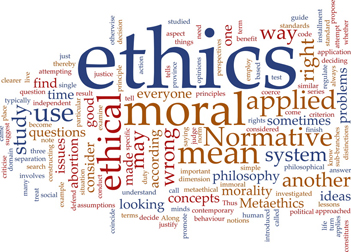The key difference between metaethics and normative ethics is that metaethics focuses on what is morality, whereas normative ethics focuses on what is moral. Metaethics and normative ethics are two branches of ethics that philosophers typically study. While metaethics is the branch of ethics that focuses on the basic nature of ethics, its status, foundations, and properties, normative ethics focuses on determining what is morally right and wrong and analyzes the moral behavior of people.
Key Takeaways
- Metaethics discusses the basic nature of ethics and moral reasoning, including questions like what is morality and whether morality is objective.
- Normative ethics focuses on determining what is morally right or wrong and explores questions related to how we ought to act in terms of morality.
- While metaethics is more connected to philosophy and analyzes fundamental ethical concepts, normative ethics is more practical and applies to basic human behavior.
What is Metaethics?
Metaethics is a branch of ethics that discusses the basic nature of ethics and moral reasoning. It includes status, foundations, and scope of moral values, properties, etc. In other words, it focuses on what morality itself is and questions the nature of morality; for example, some of these include questions like what is morality, what’s the nature of morality, is morality objective, etc.
Naturalism, nonnaturalism, emotivism, and prescriptivism are some major theories of metaethics. Moreover, according to Bernard Rosen and Richard Garner, there are three types of metaethical problems:
What is the meaning of moral terms or judgments?
This is moral semantics. Consequently, this includes questions like what do words ‘right’, ‘wrong’, ‘good’ and ‘bad’.
What is the nature of moral judgments?
This is about moral ontology. Thus, this questions whether moral judgments are relative or universal, of one kind or many kinds, etc.
How may moral judgments be supported or defended?
This belongs to moral epistemology. As a result, this includes questions like how do we determine if something is right or wrong.
What is Normative Ethics?
Normative ethics focuses on determining the content of our moral behavior, i.e., what is morally right or wrong. Moreover, it explores the set of questions that originate when considering how we ought to act, in terms of morality. Thus, normative ethics help us to decide good and bad. Teleological and deontological ethics are two branches of normative ethics. Teleological ethics determine the goodness or badness of action by examining its consequences, whereas deontological ethics determine the goodness or badness of the action by examining the action itself.
Is it wrong to abort a child? Should capital punishment be legal? Is euthanasia morally correct? These are some of the questions you may encounter in normative ethics. Similarly, all these deal with determining good and bad.
What is the Difference Between Metaethics and Normative Ethics?
Metaethics is the study of the origin and meaning of ethical concepts, while normative ethics is the study of ethical action, typically focusing on what is morally right and wrong. Thus, the key difference between metaethics and normative ethics is that metaethics focuses on what is morality, whereas normative ethics focuses on what is moral.
Moreover, metaethics has a connection to philosophy as it analyses fundamental ethical concepts, whereas normative ethics is more practical as it applies to basic human behavior. Therefore, we can consider this as another difference between metaethics and normative ethics.
Summary – Metaethics vs Normative Ethics
In brief, metaethics and normative ethics are the two major branches of ethics. Metaethics is the study of the origin and meaning of ethical concepts, while normative ethics is the study of ethical action, typically focusing on what is morally right and wrong. Thus, this is the key difference between metaethics and normative ethics.
